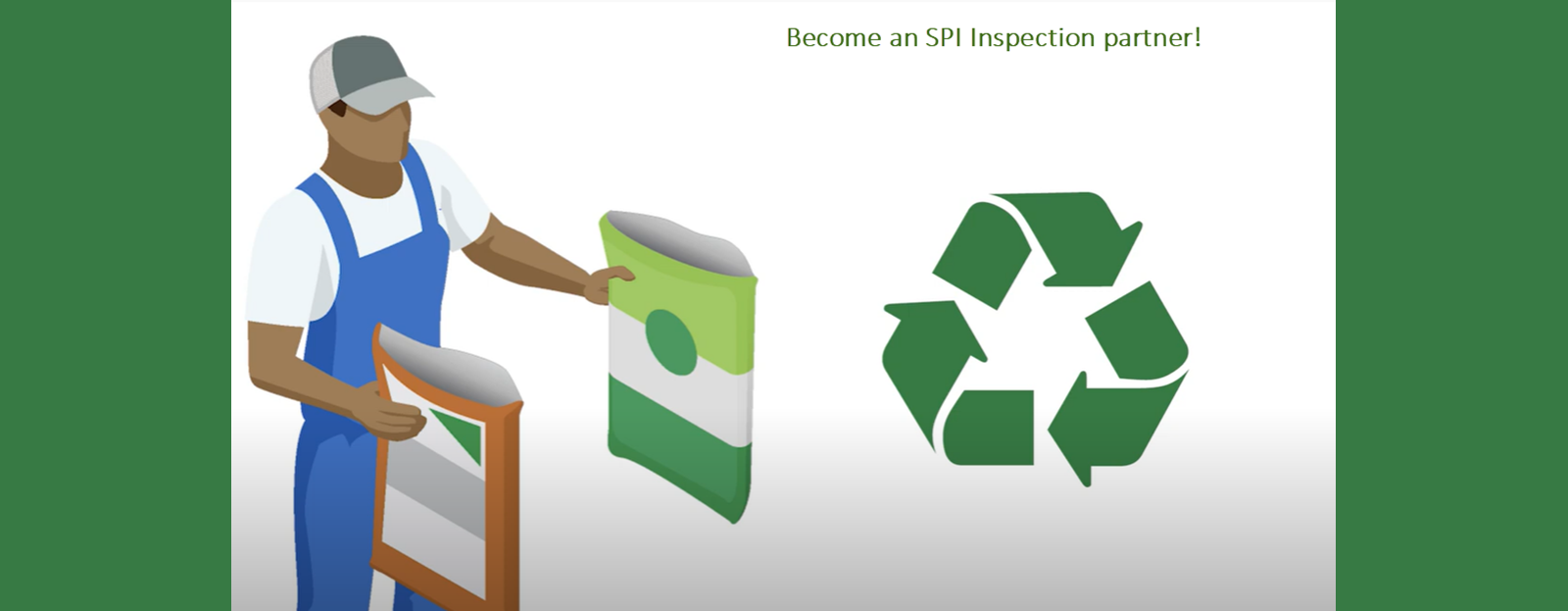
Cleanfarms collects ag waste materials through valued partnerships with over 1,500 recycling collection sites across Canada. Cleanfarms reports that opportunities to divert agricultural waste materials from landfills have expanded beyond the long-standing small and large pesticide and fertilizer containers, adding to the options available to operate farms sustainably.
Pilot programs become permanent.
A three-year project to collect seed, pesticide and inoculant (SPI) bags across the Prairies transitioned from a pilot to a permanent program during 2022. Approximately 553,800 kg of SPI bags, including fertilizer bags in Quebec, were recovered across Canada in 2022. SPI bags have been collected in the Maritimes, Ontario and Quebec for over a decade, but it was not an option available to farmers in the west until the pilot (now permanent) program began. Now empty SPI bags can be taken to Cleanfarms’ collection sites from Prince Edward Island west to Alberta. In 2022, about 553,800 kg of SPI bags, including fertilizer bags in Quebec, were recovered.
“Adding SPI bags to the list of items farmers can manage for recycling or safe disposal across the country instead of landfilling, burning, or burying them is a major step forward in our goal to have zero plastic agricultural waste disposed of in landfills,” said Cleanfarms Executive Director Barry Friesen.
“Plastic products like grain bags, baler twine, jugs, and 1000L totes are important tools in the agricultural industry. Farmers, like other Canadians, want ways to manage these materials as part of a sustainable circular economy. At Cleanfarms, our job is to develop and launch cost-efficient programs that give growers options to see these materials repurposed as new products.”
The 2022 annual report highlighted the collection of agricultural materials since Cleanfarms programs went into action:
- Plastic pesticide and fertilizer containers 23L and smaller – 149 million units
- Non-refillable bulk pesticide and fertilizer drums and totes – 392,000 units
- Seed and pesticide bags – 3,000 tonnes
- Unwanted old pesticides – 4,200 tonnes
- Old, obsolete livestock/equine medications – 67.3 tonnes
- Grain bags, agricultural film and baler twine plastic – 12,700 tonnes
- Maple Sap Tubing (in Quebec only) – 342 tonnes
Another leading-edge recycling program included in the annual report is the pilot project to recover bale wrap and silage bags made from plastic commonly used to preserve hay for livestock feed. Through partnerships such as with Dairy Farmers of Canada, Cleanfarms initiated pilot projects across the country to assess the effectiveness of using a compactor mechanism to compress loose bale wrap and silage bags, bunker covers and silage tarps into bales that are more easily stored and transported for recycling.
Quebec has one of the most comprehensive pilot programs in Canada. It collects a variety of agricultural plastics and non-organic packaging for recycling and safe disposal. In its fourth year, in 2022, it enabled farmers to manage bale wrap, silage bags, bunker covers, baler twine, netting, and maple tubing for recycling.
“Pilot projects are the foundation of Cleanfarms’ program development to recover these materials. Through pilots, we figure out how growers will use the programs, how to collect and transport materials, and how to ensure recyclables go to viable end markets. Pilots are the tool we use to determine what works and what doesn’t and how to tweak systems until they are as efficient as possible. Then, wherever possible, we transition them to permanent programs,” Friesen explained.
He noted that connections with partners and growers themselves are the direct result of having a group of on-the-ground, knowledgeable, experienced staff with backgrounds in Canadian agriculture.
For more information, visit the Cleanfarms website.

